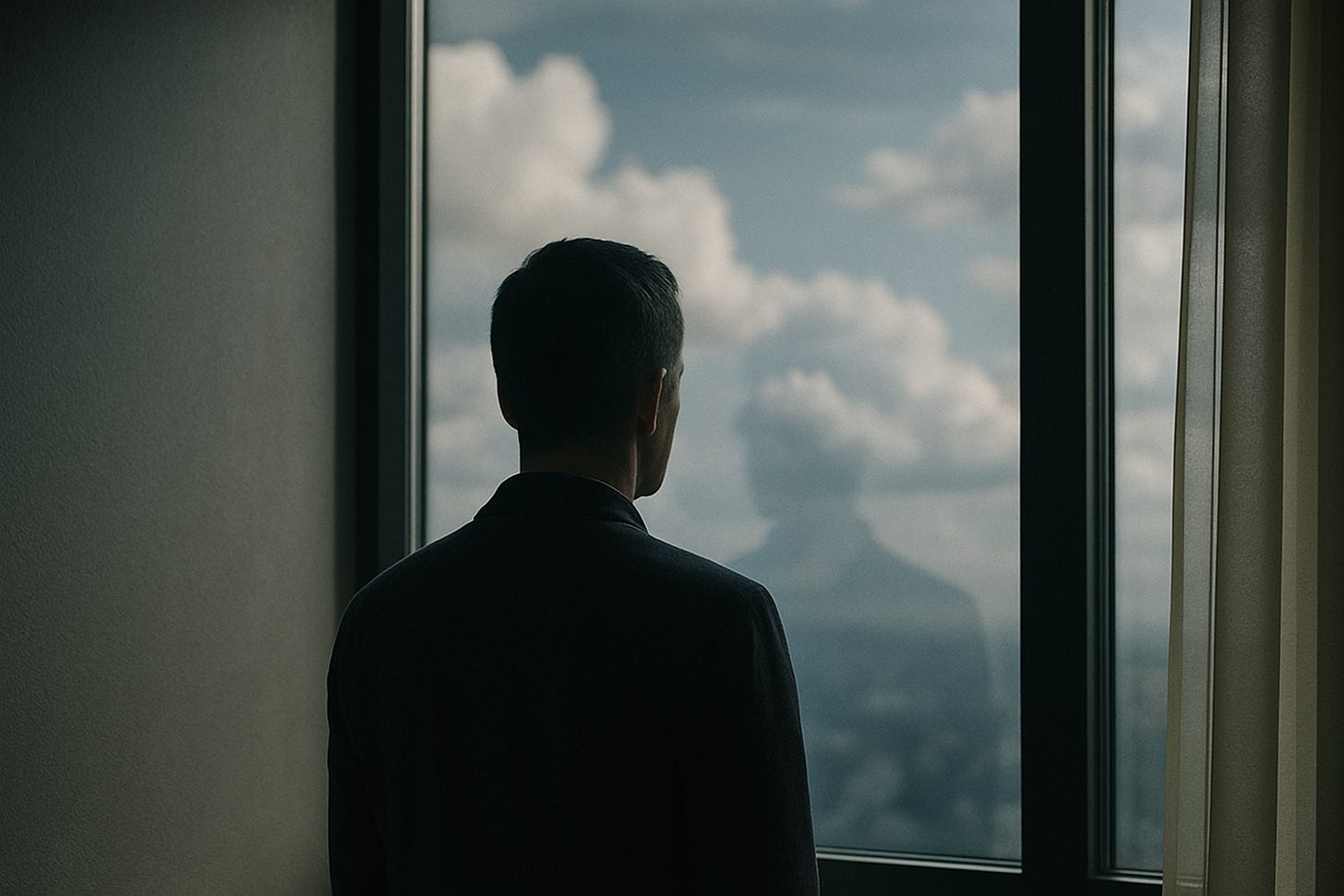Five Goodbyes That Made Me a Better Leader
I didn’t lose myself when I walked away. I found out who I was without the title.
There was a strange comfort in being the one everyone counted on. It sneaked up on me. One minute, I was just trying to help. The next, I was the answer to every problem, the glue in every crack, the engine under every hood.
For a while, that felt like purpose. Like proof that I mattered.
But over time, it wore thin. It became hard to tell if I was showing up to serve the mission or just trying to protect my identity as the person who always showed up.
That realization didn’t come all at once. It came slowly, over five moments when I had to step aside, walk out, or let go—not because I couldn’t do the job, but because staying would’ve meant shrinking.
“I didn’t quit. I made space—for others, and for myself.”
The first goodbye came mid-career. I was riding the momentum. Big projects, international travel, results I was proud of. A leadership role that felt earned. I was doing the work and getting the nods. My calendar was full, and so was my cup.
But underneath it, something felt flat. Like I was rearranging furniture in a house I didn’t want to live in anymore. Same meetings. Same decks. Same recycled wins.
One afternoon, in a meeting room with too many windows, a senior leader pulled me aside and said something like, “We think the world of you. We just don’t know what to do with you next.”
He meant it as a compliment.
But I walked out of that conversation feeling like a puzzle piece left over after the box was complete.
It wasn’t anger. It wasn’t disappointment. It was clarity. Staying would mean bending myself into shapes that no longer served me. And no one was asking me to.
So I left. Not to run away. But to make room for something new.
That was the first goodbye. It was quiet. But it stayed with me.
What surprised me most was what I found at home.
My daughter was in seventh grade. Confident. Fierce. Organizing her first group project like it was a corporate takeover. She came to me one evening, frustrated that her team wasn’t pulling their weight.
I saw the storm forming in her eyes. I also saw the solution. I had timelines, spreadsheets, even templates I’d used with clients. I reached for my laptop.
She didn’t say anything. Just looked at me, waiting.
And I realized what she wanted wasn’t help. It was belief.
I closed the laptop. Took a breath.
“What do you think you should do next?” I asked.
She stayed up two more nights. Built her own plan. Presented it solo. Got a B+.
But when she walked in the door that afternoon, she was taller. Not in inches. In self-worth.
And I felt something shift in me.
I had always thought being a good father meant shielding her from failure. That week, I realized being a better father meant letting her walk straight into it and figure out how to stand back up.
Another goodbye. Not to her, but to the version of myself that needed to be the rescuer.
Years later, I was leading a global function at a company that was scaling fast. My team was solid. Results spoke for themselves. We were lean, high-performing, and unusually sane.
But over my shoulder, always, was a shadow leader. A person who held the org chart box above mine but couldn’t seem to decide if they trusted me or not. They wanted control without accountability. Oversight without ownership.
For a while, we made it work. I took the hits. I buffered the team. I optimized every process so we could stay out of the political fray.
And then the budget cuts came.
I knew what was coming. I could either fight to protect my seat, or I could do something better.
So I built the function to survive without me. Documented everything. Promoted the right people. Made the whole thing seamless.
And then I stepped aside.
I didn’t tell anyone at first. Not until the systems ran themselves. And when I did, people asked: “But why would you walk away from something you built?”
Because it was never about me.
“The job of leadership isn’t to stay in the spotlight. It’s to wire the stage so the next act shines.”
Another goodbye. This time, to my own importance.
I thought that was my hardest one.
But I was wrong.
There was someone in my life I’d known for nearly twenty years. A close friend. He called whenever life fell apart, which was often. I was his person. The one who always picked up.
At first, I didn’t mind. That’s what friends do, right? Show up. Listen. Offer advice, even when it’s not asked for.
But after a while, the pattern got stuck. Same chaos. Same late-night calls. Same apologies. And if I’m honest, I started to feel less like a friend and more like a safety net he never looked at until he was falling.
Still, I kept showing up. Until one night, after another two-hour monologue of how everyone had failed him, I heard myself say something I hadn’t planned.
“I don’t think I’m the right person to help you anymore.”
Silence.
We didn’t talk for months after that.
I thought I’d lost him. Maybe I had.
But a year later, I heard through a mutual friend that he’d started volunteering. He’d reconnected with his cousin. He’d stopped blaming the world for his storms.
Letting go of that friendship was one of the hardest things I’ve ever done. But I see now that I wasn’t abandoning him. I was giving both of us permission to grow.
“Goodbye doesn’t always mean ending. Sometimes it means releasing.”
The final story I want to tell you is the most recent.
I was the CTO of a company that had promise. We had the right mission. The right clients. The right energy.
And slowly, it started unraveling.
Not in the headlines. Not in ways anyone would notice right away. But inside? The soul of the company was slipping. The founder wanted one thing. The board wanted another. And nobody wanted to sit in the discomfort of disagreement long enough to fix it.
We stopped solving problems. We started building slide decks.
The engineering team was burning out. The mission was bending to accommodate egos. And the worst part? We all knew.
I remember opening my laptop one morning, looking at the roadmap, and feeling nothing. Just the quiet ache of knowing this wasn’t it anymore.
That week, I had the conversation. The one where I said, “We’re wasting time, and time is the one thing we can’t rebuild.”
So I stepped out.
Not to make a statement.
Just to make space.
Because I couldn’t be the person who stayed for the wrong reasons.
What I’ve learned from all this is that firing yourself isn’t dramatic. It doesn’t come with swelling music or applause. Most people won’t understand it. Some will call it quitting.
But you’ll know.
You’ll know when staying starts to cost more than it returns. When holding on means holding others back. When being the answer becomes the obstacle.
I used to think leadership meant being the last one standing.
“Now I believe the best leaders are the ones who know when to say goodbye—and still leave behind something stronger than they found it.”
Each goodbye wasn’t an ending. It was a beginning I couldn’t see yet.
And that, I think, is what legacy really is.
Enjoy your loved ones and the rest of your Sunday!
And thank you for spending some of it with me.
Your comments and feedback are invaluable - please share your thoughts.
Warm regards,
Adi





